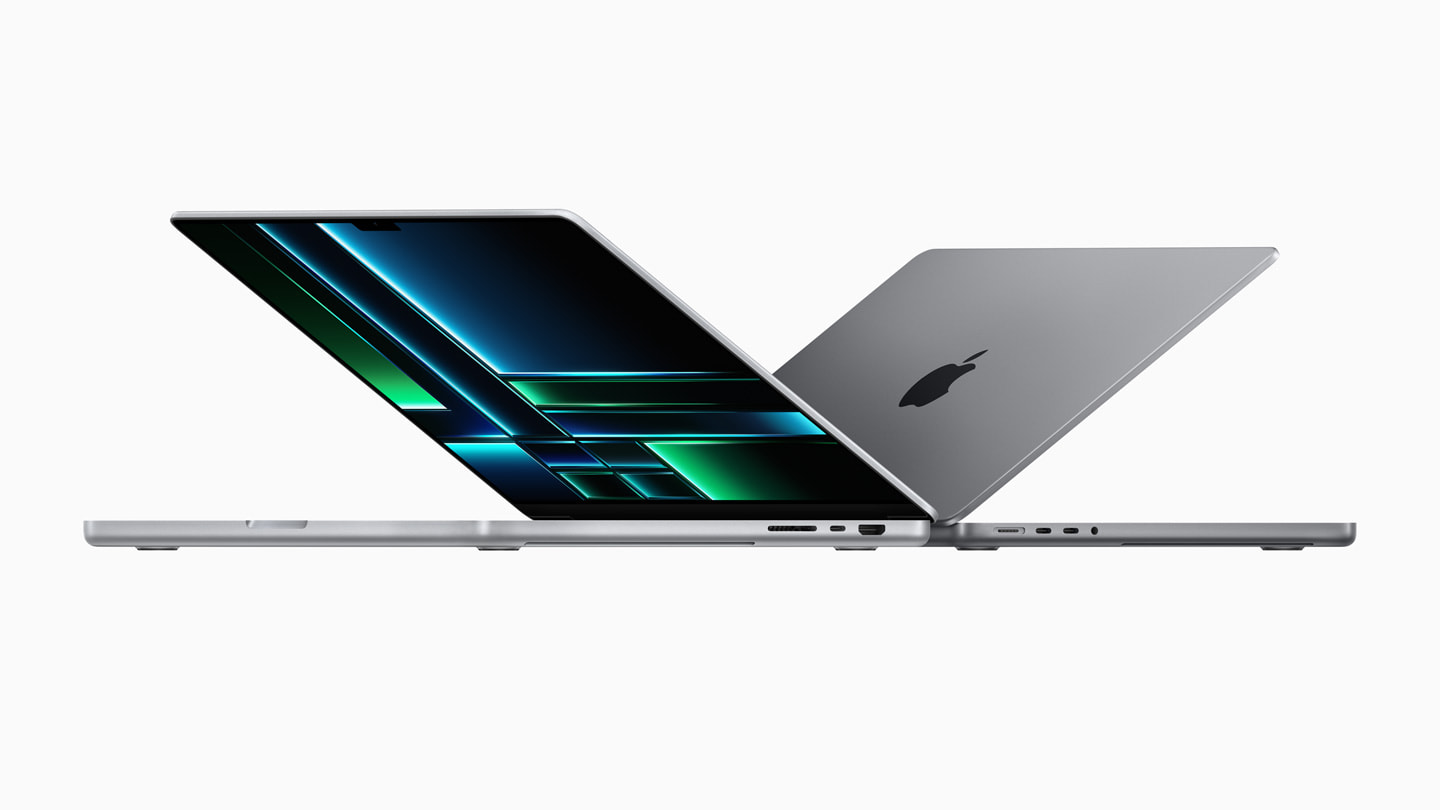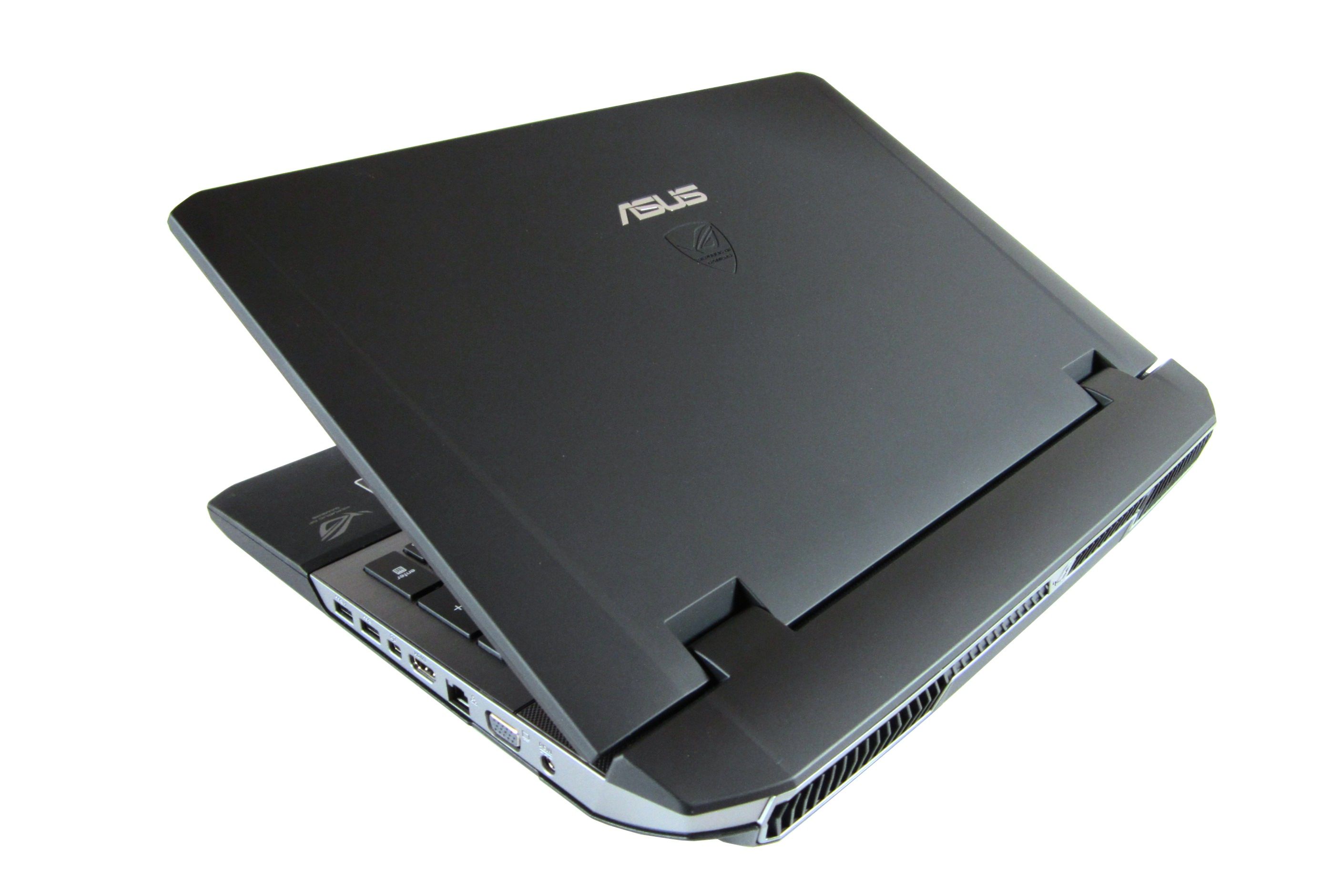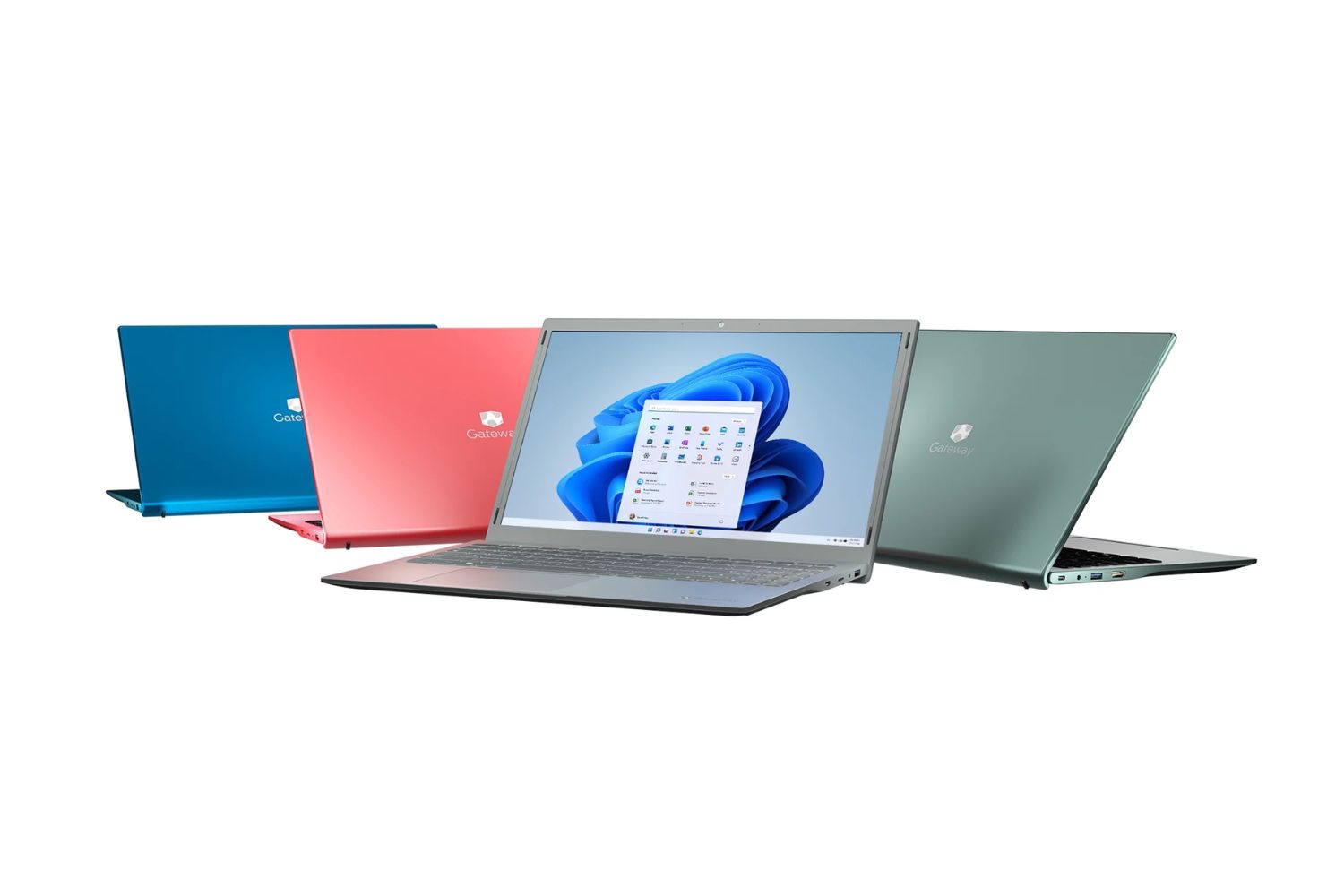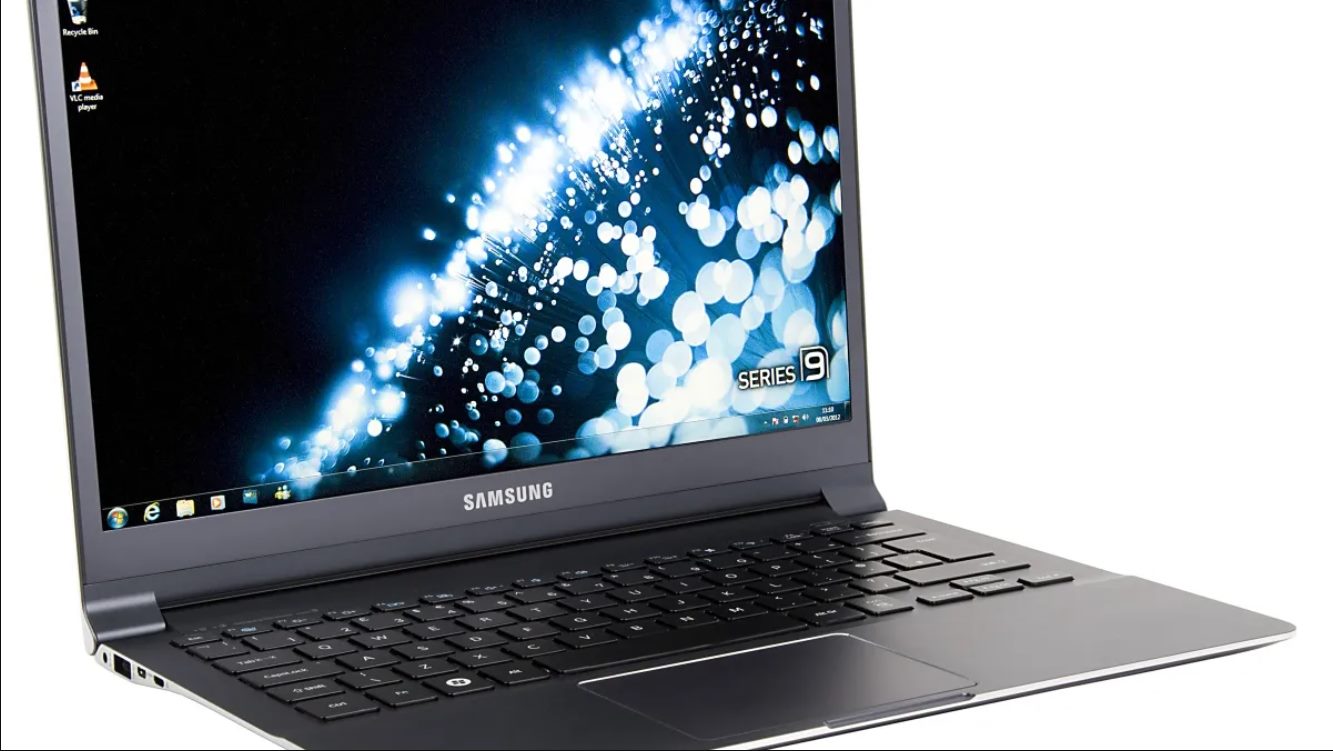Introduction
As gaming technology continues to evolve, it’s becoming increasingly common to see gaming laptops without CD drives. This shift away from optical drives might come as a surprise to some, especially considering their historical significance in the world of gaming. However, a variety of factors have contributed to this change, including advancements in digital distribution platforms, the need for portability and convenience, and budget considerations for both manufacturers and gamers.
In the past, CD drives were essential components of gaming laptops. They allowed gamers to install games, access additional content, and play CDs and DVDs. However, as technology has progressed, the gaming industry has adapted to new trends and demands.
One of the main reasons why gaming laptops no longer come with CD drives is the emergence of digital distribution platforms. Companies such as Steam, Epic Games Store, and GOG have revolutionized the way games are purchased and downloaded. These platforms offer a vast library of games that can be easily accessed and installed with just a few clicks.
Moreover, the convenience and portability of gaming laptops have become top priorities for gamers. The rise of gaming on the go has led to the design of thinner and lighter laptops, which often sacrifice built-in CD drives to reduce weight and size. Gamers now have the freedom to play their favorite games anywhere without the need to carry physical discs.
Budget considerations also play a significant role in the absence of CD drives in gaming laptops. As manufacturers strive to create more affordable options for gamers, excluding CD drives allows for cost-saving measures. This cost reduction can be passed on to the consumer, making gaming laptops more accessible to a wider range of players.
With the availability of USB and external drives, gamers still have the option to use optical media if needed. These external devices can be connected to gaming laptops when CD or DVD usage is necessary, providing a convenient solution for those who still rely on physical discs.
Overall, the decline of CD drives in gaming laptops is a reflection of the changing gaming landscape. The industry has evolved to adapt to new technologies, lifestyles, and consumer preferences. As digital distribution becomes more prevalent and the need for portability increases, the exclusion of CD drives in gaming laptops has become a logical step forward.
Convenience and Portability
One of the primary reasons behind the omission of CD drives in gaming laptops is the desire for convenience and portability. Gamers today want the freedom to play their favorite games anytime and anywhere, without the hassle of carrying physical discs. The rise of mobile gaming and the demand for gaming on the go have fueled the need for thinner and lighter laptops, which often sacrifice CD drives to reduce weight and size.
With the advent of digital distribution platforms like Steam, Epic Games Store, and GOG, gamers can easily purchase and download games with just a few clicks. These platforms offer an extensive library of games that can be accessed and installed directly onto the laptop’s internal storage. This eliminates the need for physical discs and reduces the risk of damage or loss.
Additionally, the absence of CD drives in gaming laptops simplifies the travel experience. Gone are the days of packing bulky game cases and worrying about scratches or misplacing CDs. Gamers can now travel light, with their games safely stored on their laptop’s hard drive or in the cloud.
Moreover, the convenience of instantly accessing games without the need to swap discs or wait for installations is a significant advantage. With digital distribution, gamers can jump into their favorite games within minutes, eliminating the need for lengthy installation processes. This quick accessibility not only saves time but also enhances the overall gaming experience.
Furthermore, the omission of CD drives allows for easier maintenance and longevity of gaming laptops. CD drives are moving parts that can be susceptible to wear and tear over time. By eliminating these mechanical components, manufacturers can design gaming laptops with improved durability, ensuring that gamers can enjoy their gaming experience without worrying about hardware failures or malfunctions.
Overall, the convenience and portability of gaming laptops have driven the trend of omitting CD drives. The shift towards digital distribution and the need for portable devices that can be taken anywhere have made CD drives less necessary in the gaming world. As technology continues to advance, gaming laptops will continue to prioritize convenience and portability, further solidifying the shift away from physical media.
Weight and Size
When it comes to gaming laptops, weight and size are two crucial factors that directly impact the overall user experience. Gamers who travel frequently or prefer a more portable setup prioritize laptops that are slim and lightweight. This is one of the reasons why CD drives are often omitted from gaming laptops.
Traditional CD drives add bulk and weight to laptops due to their mechanical components. To create lighter and more compact gaming laptops, manufacturers have opted to remove the CD drive and focus on other aspects of the device, such as improved graphics cards, cooling systems, and battery life.
The reduction in weight and size provides several advantages. Firstly, it makes gaming laptops more comfortable to carry and transport. Gamers can easily slip their slim and lightweight laptops into backpacks without being burdened by the extra weight of a CD drive.
Secondly, the smaller form factor allows for efficient use of space, resulting in a sleek and aesthetically pleasing design. Gaming laptops that prioritize a slim profile not only look more appealing but also fit better in limited spaces.
Moreover, the omission of CD drives in gaming laptops doesn’t necessarily mean a compromise on storage capacity. Most laptops now come equipped with spacious solid-state drives (SSDs) that offer fast and ample storage for games, files, and applications. This eliminates the need for external storage solutions and ensures that gamers have enough space to install their favorite games without relying on physical discs.
Furthermore, the removal of CD drives contributes to better thermal management. Slimmer laptops with fewer components have improved airflow and cooling capabilities, which is crucial for intensive gaming sessions. This results in a more efficient and sustainable gaming experience, as the laptop remains cool and performs optimally for longer durations.
In summary, the absence of CD drives in gaming laptops allows for a reduction in weight and size, providing gamers with a more portable and visually appealing device. The focus on slimness and compactness enhances the overall user experience, making gaming laptops easier to carry, more efficient in terms of space utilization, and better equipped for thermal management.
Performance and Power
When it comes to gaming, performance is a critical factor that can make or break the gaming experience. Modern gaming requires powerful hardware to run demanding games smoothly and efficiently. This focus on performance and power is another reason why gaming laptops have moved away from including CD drives.
By eliminating the CD drive, manufacturers can allocate resources and space to more essential components like powerful CPUs, high-end graphics cards, and larger batteries. These hardware upgrades result in improved gaming performance, allowing users to play graphics-intensive games at higher resolutions and frame rates.
CD drives also consume power while in use, impacting the overall battery life of the laptop. By removing this component, gaming laptops can optimize their power management systems to ensure longer-lasting battery performance. This is especially important for gamers who frequently game on the go or in situations where access to a power source may be limited.
Furthermore, the absence of a CD drive allows for better heat dissipation within the laptop. Intense gaming sessions generate a significant amount of heat, and efficient cooling is critical to prevent overheating and performance throttling. By removing the CD drive, gaming laptops can incorporate more effective cooling solutions, such as larger heatsinks or additional fans, to maintain optimal performance during extended gameplay sessions.
In addition, the exclusion of CD drives also contributes to better overall system stability. Mechanical components, like CD drives, can be susceptible to wear and tear, which may lead to functional issues or failures over time. By removing these components, manufacturers can enhance the reliability and durability of gaming laptops, ensuring a longer lifespan and reducing the need for repairs or replacements.
Overall, the decision to remove CD drives from gaming laptops aligns with the priority of maximizing performance and power. By eliminating this component, gaming laptops can allocate resources to more critical hardware components, optimize power management, enhance cooling systems, and improve overall system stability. This results in a better gaming experience with smoother gameplay, longer battery life, and increased longevity of the device.
Budget Considerations
When it comes to purchasing gaming laptops, budget considerations are important for both manufacturers and consumers. The exclusion of CD drives in gaming laptops is, in part, driven by the need for cost-saving measures without compromising performance and functionality.
CD drives require additional manufacturing costs, including the mechanical components and the integration process. By removing the CD drive, manufacturers can lower production costs, which can be passed on to the consumer in the form of more affordable gaming laptops. This allows a wider range of gamers to access the exciting world of gaming without breaking the bank.
Additionally, the rising popularity of online and digital distribution has significantly reduced the demand for physical CDs and DVDs. As a result, many game developers and publishers have shifted their focus to digital downloads and licenses. This shift aligns with the growing trend towards faster and more convenient access to games without the need for physical media.
From a consumer perspective, the absence of a CD drive also eliminates the need to purchase physical copies of games. With digital distribution platforms like Steam and GOG, gamers can instantly download their desired games online, eliminating the need to visit physical stores or wait for deliveries.
Furthermore, digital distribution often offers competitive pricing, frequent discounts, and the convenience of accessing a vast library of games without the need for physical storage space. This allows gamers to stretch their budgets further by taking advantage of various sales and bundle offers.
Moreover, the availability of USB and external optical drives provides a cost-effective alternative for gamers who still require occasional access to physical media. External drives can be purchased separately and used when needed, avoiding the need for a built-in CD drive in the laptop itself.
In summary, budget considerations play a significant role in the absence of CD drives in gaming laptops. By eliminating this component, manufacturers can reduce production costs, enabling them to offer more affordable gaming laptops to consumers. The shift towards digital distribution and the availability of external optical drives further support the trend of omitting CD drives, providing gamers with cost-effective alternatives and the convenience of online purchasing and downloading.
Digital Download Market
The rapid growth of the digital download market has played a significant role in the decline of CD drives in gaming laptops. As technology advances, the convenience and accessibility of digital distribution platforms have revolutionized the way games are purchased and played.
Platforms like Steam, Epic Games Store, and GOG have transformed the gaming industry by offering vast libraries of games that can be downloaded directly to a gaming laptop’s storage. This eliminates the need for physical media and provides instant access to a wide range of games with just a few clicks.
One of the key advantages of digital downloads is that they are not tied to any specific physical medium, such as CDs or DVDs. Gamers can purchase games online, and the licenses are linked to their digital accounts. This allows them to easily access and download their purchased games onto any compatible device, including gaming laptops.
The digital download market also offers various advantages over physical copies. Gamers no longer need to worry about misplacing or damaging their physical discs, as their games are securely stored in their digital libraries. Additionally, with digital downloads, gamers can benefit from features like automatic updates, cloud saves, and the ability to re-download games at any time, even if their laptop is replaced or upgraded.
Moreover, the rise of streaming services within the gaming industry is further reducing the need for physical media. Services like Xbox Game Pass and PlayStation Now allow gamers to stream games directly to their devices without the need for downloading or installing them.
The digital download market has also given independent game developers and smaller studios the opportunity to reach a wider audience. Through platforms like Steam, these developers can distribute their games digitally, without the need for physical distribution or the costs associated with producing and shipping physical copies.
Furthermore, digital downloads often come with attractive pricing options, including discounts, bundle deals, and frequent sales. This allows gamers to save money and expand their gaming libraries without the need to rely on physical retailers or wait for physical copies to be shipped.
In summary, the booming digital download market has significantly influenced the decision to exclude CD drives in gaming laptops. The convenience, accessibility, and advantages offered by digital distribution platforms have transformed the gaming industry, making physical media less necessary. Gamers can now enjoy the benefits of digital downloads, including instant access to a vast library of games, worry-free storage, automatic updates, and attractive pricing options.
USB and External Drives
While gaming laptops may no longer come equipped with built-in CD drives, the availability of USB and external drives provides a convenient solution for gamers who still have the occasional need for physical media.
USB drives have become a common method for transferring and storing data, including game installations and patches. Gamers can easily utilize USB drives to transfer games from one device to another or to back up their game files. USB drives are portable, widely compatible, and offer fast data transfer speeds, making them a practical alternative to CD drives.
External optical drives, on the other hand, provide a way to access CDs and DVDs without the need for a built-in drive in the gaming laptop itself. These external drives can be connected to the laptop via USB, allowing gamers to install games, play movies, or access data from physical media when necessary.
Many manufacturers offer external optical drives that are specifically designed for gaming laptops. These drives are slim, lightweight, and easy to connect, making them ideal for gamers who occasionally rely on physical discs. This allows gamers to enjoy the benefits of a gaming laptop without sacrificing the ability to access their existing physical media collection.
Additionally, external drives are versatile and can be used for other purposes beyond gaming. They can serve as a convenient backup solution for important files, a means to install software or drivers, or a way to access older games or applications that may not be available through digital distribution platforms.
The availability of USB and external drives ensures that gamers who may still have CDs or DVDs in their collection can continue to use them when needed, without the need for a built-in CD drive. This flexibility provides gamers with the best of both worlds – the convenience and portability of a gaming laptop without sacrificing access to physical media.
In summary, while CD drives may be absent in gaming laptops, the availability of USB and external drives offers a practical solution for gamers who still require access to physical media. Gamers can utilize USB drives for data transfer and storage, while external optical drives provide a means to access CDs and DVDs without the need for a built-in drive. This flexibility ensures that gamers can make the most of their gaming laptops while still enjoying the benefits of physical media when desired.
Optical Drives Decreasing in Popularity
The decline in the popularity of optical drives is not limited to just gaming laptops. In fact, the overall demand for optical drives has been decreasing across the technology landscape. Several factors have contributed to this trend, leading to a shift towards digital media and alternative storage solutions.
One of the primary reasons for the decreasing popularity of optical drives is the emergence of cloud storage and online streaming services. With the increase in internet speeds and the widespread availability of high-bandwidth connections, users can now store and access their files, including games, photos, and videos, directly from the cloud. This eliminates the need for physical media and provides the convenience of accessing files from multiple devices.
Furthermore, digital media offers advantages in terms of accessibility and convenience. With digital downloads and streaming, users can access their media instantly, without the need to search for or swap physical discs. This level of convenience aligns with the fast-paced nature of our digital lives, where instant access to content is highly valued.
The storage capacity of optical discs is also a factor contributing to their decreased popularity. DVDs typically hold around 4.7 to 9.4 gigabytes of data, while Blu-ray discs can store up to 50 gigabytes. With the rise in demand for larger file sizes, such as high-definition movies and AAA game titles, optical discs may not provide sufficient storage capacity. On the other hand, digital downloads and cloud storage can offer practically unlimited capacity, accommodating the ever-growing sizes of media files and games.
In addition, the physical nature of optical discs makes them susceptible to damage, scratches, and deterioration over time. Users often encounter issues with unreadable or damaged discs, leading to data loss and the need to repurchase or repair damaged copies. This risk of data loss has encouraged users to seek more reliable and durable alternatives, such as digital downloads or cloud storage.
The decreasing popularity of optical drives is also influenced by the cost factor. Optical drives require additional manufacturing and integration costs, which can add to the overall price of devices. As manufacturers strive to provide cost-effective solutions to consumers, the exclusion of optical drives in devices like gaming laptops can help reduce production costs and make these devices more affordable.
Overall, the decreasing popularity of optical drives can be attributed to the rise of digital media, improvements in cloud storage and streaming services, the need for larger storage capacity, concerns over data loss, and cost considerations. These factors have led to a decline in demand for optical drives, resulting in their omission from many modern devices, including gaming laptops.
Conclusion
The absence of CD drives in gaming laptops is a reflection of the evolving gaming landscape and shifting consumer preferences. Factors such as convenience and portability, weight and size considerations, performance and power optimizations, budget considerations, the rise of digital distribution platforms, and the availability of USB and external drives have all contributed to the decline in the inclusion of CD drives.
The convenience and portability of gaming laptops have become paramount, allowing gamers to play their favorite games anytime and anywhere. The rise of digital distribution platforms has made accessing and installing games easier than ever, eliminating the need for physical discs.
Moreover, the reduction in weight and size of gaming laptops has resulted in a more compact and efficient design. The removal of CD drives has allowed for the incorporation of more powerful hardware and improved cooling systems, enhancing the overall gaming experience.
Budget considerations have also played a role in the absence of CD drives in gaming laptops. By eliminating this component, manufacturers can reduce production costs, making gaming laptops more accessible and affordable to a wider audience.
The digital download market has revolutionized the gaming industry, offering a vast selection of games that can be instantly accessed and downloaded. USB and external drives provide a flexible solution for gamers who still require occasional access to physical media.
In conclusion, the exclusion of CD drives from gaming laptops is a natural progression driven by advancements in technology, changes in consumer preferences, and the need for portability, convenience, and performance. The rise of digital distribution, the availability of external drives, and the emphasis on lightweight and compact designs have made CD drives less necessary in the gaming world. As technology continues to evolve, gaming laptops will continue to adapt to the demands of gamers, providing them with a seamless and immersive gaming experience.

























